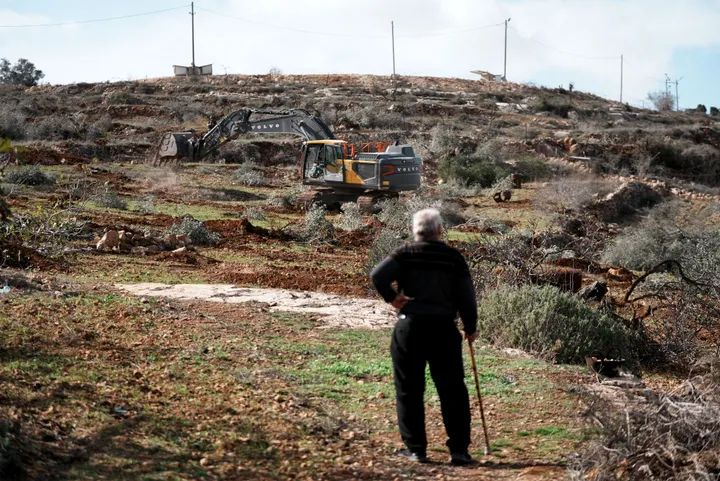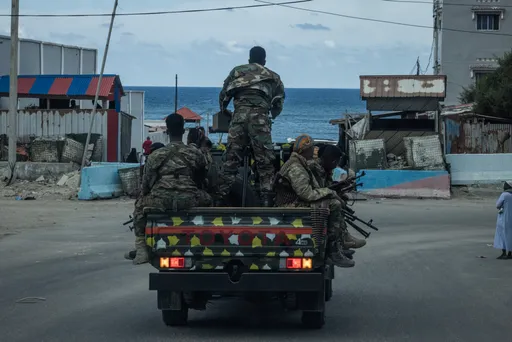By Mary Mundeya
Life took a dramatic turn for Loveness Mainato when she gave birth to a child with albinism, autism and epilepsy in 1999.
Mainato says she faced heart-breaking treatment from both within her family and the larger society simply because of the condition of the child she gave birth to.
“I was broken, considering that those people whom I believe were my own had failed to support me. My husband abandoned me along with the society which could not stand me,’’ she told TRT Afrika.
Albinism is a genetic condition that causes the skin, hair, and eyes to produce less melanin, which makes them look light in colour or to have no colour at all.
People living with albinism sometimes also suffer from visual impairments and high vulnerability to skin infections and risks of cancer.
According to a report by the Zimbabwe National Statistics Agency in 2022, there were 9, 753 people living with albinism in Zimbabwe.
There are a lot of unsubstantiated beliefs and myths around albinism in Zimbabwe and some other countries in the region leading to rampant mistreatment of people with the medical condition.
‘’Some would say that it was a punishment from God for the evil deeds that I have done. Others would call me a witch or a prostitute,” Mainato says.
The 50-year-old mother says because of her experience, she had suffered from depression and had to spend nearly a month in a hospital receiving treatment.
As she was still trying to come to terms with the reality of her life following her childbirth in the late 1990's, she then gave birth to a second child with albinism in 2007.
This caused serious strained in her marriage. Her husband allegedly abandoned her with the children and then he fled to neighbouring Botswana.
Mainato described this as the ‘‘last nail in the coffin’’ for her marriage. Due to deep-rooted myths in some communities in Zimbabwe, many albinos and their mothers face ill treatment.
From victim to benefactor
Despite her agonising experience, Mainato did not give up. Instead, she became more determined to help herself and others facing similar fate.
She set up an NGO called Albino Charity Organisation of Zimbabwe taking care of more than 50 abandoned children who were born with albinism.
“When I got out of the hospital, with the support of my mother and my siblings I accepted my situation and I saw this as a sign from God that maybe I was destined to be a mother to children with albinism,’’ she says.
Mainato says she understood that proper skin care for people with albinism is expensive and many parents in the country can’t afford it.
She says people with albinism need extra care in terms of having protective skin creams and they face health challenges such as cancer risks.
‘’This is why most parents find it hard to accept their situation of having a child with albinism but I told myself that this is now my life and there is nothing I can do to change that,” said Mainato.
Her NGO, Albino Charity Organisation of Zimbabwe, established in 2010 provides vocational training and education support for children with albinism and well as advocates for the protection of the rights of people living with this medical condition.
'My mother received insults'
The non-profit organization is based in the town of Chitungwiza in Harare province. It gets funds through donations – which it uses to organise trainings and pay school fees for the children – 15 of them now at the NGO’s facility. The people living with albinism are trained in various fields including poultry and snack making.
“It is very unfortunate that parents of children with albinism themselves are struggling to accept that their children have such a condition,’’ Mainato laments.
‘’Most children need care and protection. Understanding the nature of how society can be towards people with albinism, I have seen that many children find our home better and safe as compared to their family homes,’’ she stresses.
According to her, children living with albinism face discrimination even from family members saying ‘’only a small percentage is well-taken care of by their families.”
Some of the staff at the NGO are also living with albinism including Zvidzai Juma who recalls she and her mother being stigmatised.
“Considering the challenges that I had to go through during my childhood, I faced so many difficulties, especially with my mother who was insulted by some of members of the society at every turn,’’ she told TRT Afrika.
Juma believes their efforts at the NGO are going a long way in addressing the numerous issues faced by people living with albinism especially children in terms of economic empowerment, educational advancement and rights protection.
Sharing joy and laughter
One of the beneficiaries of Albino Charity Organisation Zimbabwe is Nyaradzo Kusekwa.
“All I know is that I started staying with her when I was around five years old and Mrs. Mainato has been a mother figure to me,’’ Kusekwa says.
The teenager is happy that she is now acquiring an education. ‘’I am now doing my grade seven in primary school. Up until now I have nothing to complain about,’’ she told TRT Afrika. She describes the NGO centre as their home ‘’where we share our joys and laughter without being judged for our skin colour.’’
But Kusekwa says she still faces some forms of discrimination at school from some pupils who usually stay away from her. She remains determined, though. ‘’I am working hard academically with a dream to become an engineer one day,” says Kusekwa.
Although projects like Albino Charity Organisation Zimbabwe are making impact in improving the lives of people living with albinism, Mainato believes families and the society in general need more awareness in order to tackle the discrimination against people living with albinism.


















.JPG?width=512&format=webp&quality=80)




